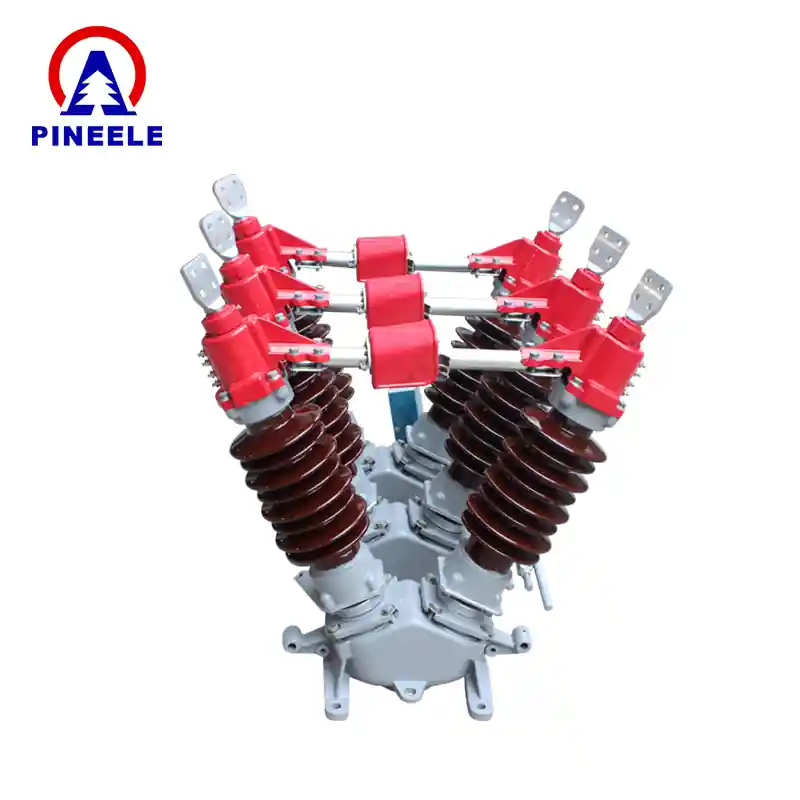
Le 60 amp disconnect is a compact, essential component in many residential and light commercial electrical systems. Though smaller than its 100 or 200 amp counterparts, it plays a critical role in safely isolating power from specific circuits or equipment. This guide explores everything you need to know about 60 amp disconnects—from their function and applications to how to choose the right one for your needs.
What Is a 60 Amp Disconnect?
A 60 amp interrupteur de déconnexion is a manually operated device designed to disconnect up to 60 amperes of electrical current. It is typically used to isolate appliances, HVAC systems, subpanels, or small outbuildings from the main electrical supply. These disconnects are available in fusible (with integrated fuses for overcurrent protection) and non-fusible variants.
The switch allows for maintenance or emergency shutdowns without requiring full system power-off. According to the National Electrical Code (NEC), many installations require a dedicated disconnect within sight of the equipment being served.
Applications of a 60 Amp Disconnect
- Air Conditioning Units: Commonly required to meet code for condenser units.
- Hot Tubs and Spas: Used to safely isolate equipment for servicing.
- Irrigation Pumps: Provides disconnecting means near remote water pumps.
- Outdoor Lighting Systems: Used in commercial or estate-sized residential landscapes.
- Small Sheds or Workshops: Serves as a mini subpanel shutoff.
Spécifications techniques
- Amperage Rating: 60A maximum
- Voltage: Typically 240V single-phase (120/240V), or 277/480V three-phase in commercial settings
- Enclosure Type: NEMA 1 (indoor) or NEMA 3R (outdoor rainproof)
- Fusible or Non-Fusible: Fusible units include slots for Class H/K or R fuses
- Manual Operation: Single or double-throw design
- UL/CSA Certification: Required for safe use and code compliance
- Visible Blade Mechanism: Available on some models for visual confirmation of open/closed status
Comparison With Other Disconnects
| Feature | 60 Amp Disconnect | 100 Amp Disconnect | 200 Amp Disconnect |
|---|---|---|---|
| Max Current | 60A | 100A | 200A |
| Common Usage | HVAC, spas, small loads | Subpanels, garages | Main panels, commercial |
| Enclosure Size | Compact | Medium | Large |
| Cost | Low | Moderate | Higher |
| Installation Simplicity | Very easy | Moderate | Requires licensed electrician |
Buying Guide: What to Look For
Before purchasing a 60 amp disconnect, evaluate the following:
- Indoor vs. Outdoor: Use NEMA 3R for any exterior placement.
- Fusible vs. Non-Fusible: Choose fusible for extra protection or when required by code.
- UL or CSA Listing: Ensures compliance with NEC or local codes.
- Ease of Installation: Some models include knockouts and ample wiring space.
- Construction Quality: Powder-coated steel or thermoplastic enclosures resist rust and UV degradation.
- Brand Reliability: Leading manufacturers include Square D, Siemens, Eaton, ABB, Schneider Electric.
Market Trends and Industry Usage
As homes and light commercial systems become more segmented and modular, smaller disconnects like the 60 amp model are increasingly in demand. According to IEEE and data published by IEEMA, low-capacity disconnection devices account for a growing share of the switchgear market.
Their affordability, ease of installation, and ability to meet NEC service access regulations make them popular for both new builds and retrofits.
Foire aux questions (FAQ)
A : Yes. You can use a 60A-rated disconnect for a lower load, provided all wiring and circuit breakers are appropriately sized.
A : Most jurisdictions require an electrical permit and inspection. Check with your local authority.
A : Fusible disconnects offer additional short-circuit protection. If upstream protection isn’t sufficient, or if local codes require it, choose fusible.
Final Thoughts
Though small in stature, the 60 amp disconnect is a powerful tool for improving safety, simplifying maintenance, and ensuring code compliance in various low-load electrical applications. Whether you’re wiring an HVAC unit, hot tub, or garden shed, choosing the right disconnect switch ensures peace of mind, durability, and protection.
Get a printable version of this page as a PDF.